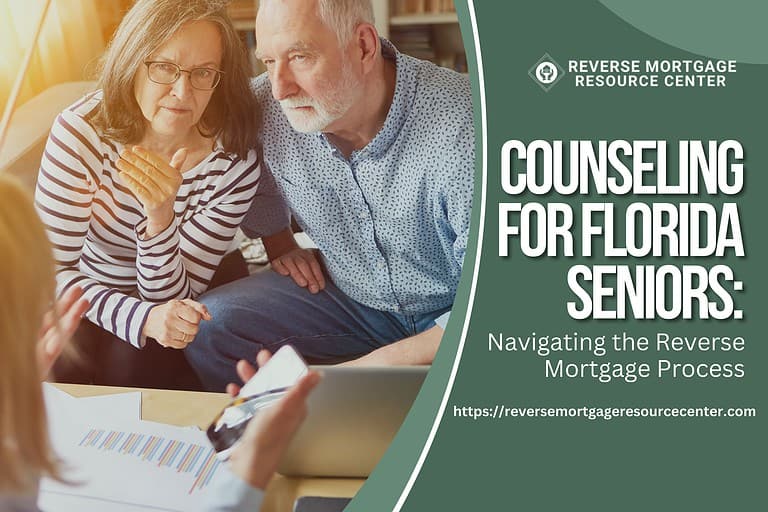Estate Planning and Florida Reverse Mortgages: Tips for Seniors
Estate planning is a crucial aspect of financial management, particularly for Florida seniors looking to secure their assets and financial well-being for the future. One powerful tool seniors in the Sunshine State can utilize to support their estate planning goals is the Florida reverse mortgage. In this article, we will explore estate planning in the context of Florida reverse mortgages, offering valuable tips to help seniors make informed decisions and secure their financial future.
Understanding Florida Reverse Mortgages
Before delving into estate planning, it’s important to understand what a reverse mortgage is and how it works. A reverse mortgage is a financial product that allows homeowners aged 62 and older to convert a portion of their home’s equity into accessible funds. Unlike traditional mortgages, you do not make monthly payments to a lender. The funds from a reverse mortgage can be received as a lump sum, monthly installments, a line of credit, or a combination of these options.
In Florida, the Home Equity Conversion Mortgage (HECM) is the most common type of reverse mortgage, and it is insured by the Federal Housing Administration (FHA). Florida is known for its significant population of retirees, making reverse mortgages an appealing choice for seniors seeking to access their home equity.
The Role of Estate Planning
Estate planning is arranging for, managing, and distributing your assets after your passing. For seniors with a reverse mortgage, estate planning takes on added significance. Here are some tips for effectively combining estate planning with a Florida reverse mortgage:
Consult with a Professional
Before making any decisions about reverse mortgages and estate planning, consulting with financial and legal professionals specializing in this area is essential. An experienced financial advisor and estate planning attorney can help you understand the implications of your decisions and ensure that your estate plan aligns with your financial goals.
Assess Your Financial Goals
Consider your long-term financial goals and your home equity’s role in achieving those goals. Determine how much money you need to maintain your lifestyle and cover your expenses during retirement. Understanding your financial needs will help you decide the amount of equity to tap into through a reverse mortgage.
Understand the Implications for Your Heirs
It’s important to understand that a reverse mortgage is a loan, and the borrowed funds must be repaid when the homeowner passes away or no longer lives in the home. In Florida, the heirs can repay the loan, keep the property, or sell the home to pay off the loan balance. Estate planning should consider the impact of a reverse mortgage on your heirs and how it will affect the inheritance you leave behind.
Designate Beneficiaries
Designate beneficiaries in your estate plan to streamline the inheritance process and protect your assets. This can help ensure that your heirs know your wishes and receive their inheritance more quickly and with fewer complications.
Establish a Living Will and Healthcare Directive
Estate planning is not just about financial matters but also end-of-life decisions. It’s advisable to create a living will and healthcare directive, which outlines your medical treatment preferences if you cannot make decisions for yourself. By addressing these issues in your estate plan, you can have peace of mind knowing your healthcare wishes are documented.
Regularly Review and Update Your Estate Plan
Life circumstances and financial situations change over time. It’s crucial to periodically review and update your estate plan to ensure it remains aligned with your goals and current circumstances. This includes any changes in your reverse mortgage agreement, financial health, or family’s circumstances.
Advantages of a Florida Reverse Mortgage in Estate Planning
Integrating a Florida reverse mortgage into your estate planning can offer several advantages:
Supplement Retirement Income
A reverse mortgage provides access to additional funds during retirement, which can help cover living expenses and provide more financial flexibility. This can reduce the need to dip into other assets intended for heirs, allowing those assets to grow for your beneficiaries.
Remain in Your Home
You can stay home without making monthly mortgage payments with a reverse mortgage. This can be especially beneficial for seniors who wish to age in place and maintain their independence.
Use the Funds for Healthcare Expenses
Healthcare costs can be a significant financial burden in retirement. Reverse mortgage funds can cover medical expenses, reducing the need to liquidate other assets for healthcare needs.
Tax-Free Income
The money received from a reverse mortgage is typically considered a loan and is not subject to income tax. This can be advantageous for seniors who want to minimize their tax liabilities.
Common Misconceptions about Reverse Mortgages
It’s important to address some common misconceptions about reverse mortgages to make informed estate planning decisions:
You Give Up Ownership of Your Home
With a reverse mortgage, you remain the owner of your home. The lender has a lien on the property, but you retain full ownership rights.
You Can Owe More Than Your Home’s Value
While it is true that the loan balance may exceed the home’s value if you live in the home for an extended period, you or your heirs are not responsible for paying the excess amount. The FHA insurance on HECM loans covers any shortfall.
You Must Repay the Loan While Living in Your Home
You do not need to make monthly payments on a reverse mortgage as long as you continue to live in your home, maintain it, and pay property taxes and homeowners’ insurance.
Reverse Mortgages Are a Scam
Reverse mortgages are a legitimate financial product, regulated by federal agencies, including the FHA. However, working with reputable lenders and seeking professional advice is essential, like any financial product.
Wrap Up
Estate planning is a crucial component of a senior’s financial strategy, and a Florida reverse mortgage can be a valuable tool to support those efforts. By consulting with professionals, assessing your financial goals, and considering the implications for your heirs, you can make informed decisions about integrating a reverse mortgage into your estate plan. The advantages of supplementing your retirement income and covering expenses, while remaining in your home, are compelling reasons to explore the possibilities of a reverse mortgage. However, it’s essential to dispel common misconceptions and carefully consider the process.
As you embark on your estate planning journey, remember that every individual’s situation is unique, and there is no one-size-fits-all solution. Your estate plan should be tailored to your specific needs and objectives, and it should evolve as your circumstances change. By creating a comprehensive estate plan that includes a reverse mortgage, you can secure your financial future and leave a legacy for your heirs with confidence and peace of mind.
REVERSE MORTGAGE RESOURCE CENTER ~LIVE LIFE ON YOUR TERMS~
Our Lending Team has been serving our clients since 2004. We are passionate about serving our clients with integrity to help them achieve their financial goals.







